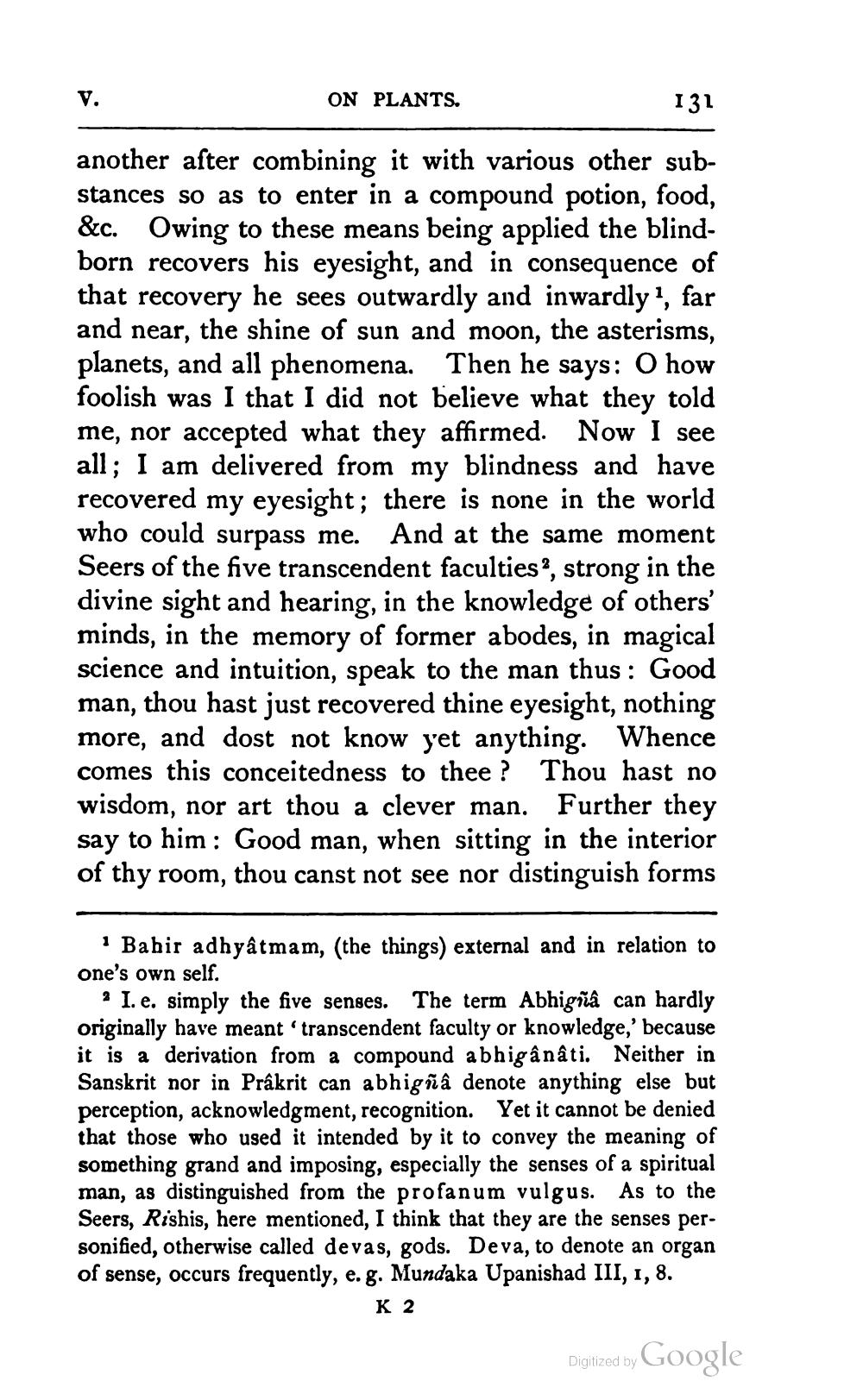________________
ON PLANTS.
131
another after combining it with various other substances so as to enter in a compound potion, food, &c. Owing to these means being applied the blindborn recovers his eyesight, and in consequence of that recovery he sees outwardly and inwardly , far and near, the shine of sun and moon, the asterisms, planets, and all phenomena. Then he says: O how foolish was I that I did not believe what they told me, nor accepted what they affirmed. Now I see all; I am delivered from my blindness and have recovered my eyesight; there is none in the world who could surpass me. And at the same moment Seers of the five transcendent faculties?, strong in the divine sight and hearing, in the knowledge of others' minds, in the memory of former abodes, in magical science and intuition, speak to the man thus : Good man, thou hast just recovered thine eyesight, nothing more, and dost not know yet anything. Whence comes this conceitedness to thee? Thou hast no wisdom, nor art thou a clever man. Further they say to him: Good man, when sitting in the interior of thy room, thou canst not see nor distinguish forms
* Babir adhyâtmam, (the things) external and in relation to one's own self.
* I. e. simply the five senses. The term Abhigñâ can hardly originally have meant transcendent faculty or knowledge,' because it is a derivation from a compound abhigânâti. Neither in Sanskrit nor in Prâkrit can abhig ñâ denote anything else but perception, acknowledgment, recognition. Yet it cannot be denied that those who used it intended by it to convey the meaning of something grand and imposing, especially the senses of a spiritual man, as distinguished from the profanum vulgus. As to the Seers, Rishis, here mentioned, I think that they are the senses personified, otherwise called devas, gods. Deva, to denote an organ of sense, occurs frequently, e. g. Mundaka Upanishad III, 1, 8.
K2
Digitized by Google




